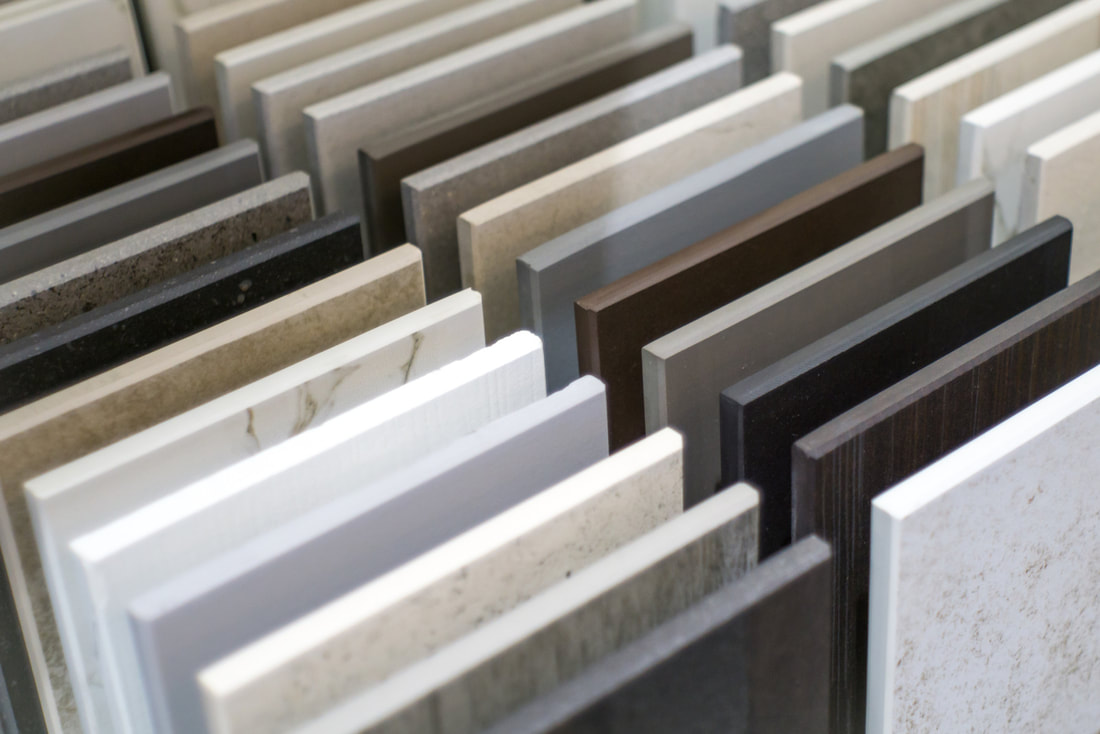|
Are you looking to upgrade your kitchen countertop? With many options available for practical and aesthetic reasons, selecting the perfect kitchen countertop can be daunting. Choosing the right kitchen countertop can be overwhelming, from granite and quartz to marble. Don't fret - we'll help you comprehend each material's perks so you can decide on the most suitable one for your home. Read on to learn more about types of kitchen countertops, their advantages and tips for selecting the perfect one. Types of Kitchen CountertopsaFor kitchen countertops, many materials exist that provide varied benefits and drawbacks. Natural stone is one of the most popular options for its classic look and durability. Granite is often chosen for its heat-resistant properties, low upkeep requirements, and wide range of colors. Marble is another option, but it can be more expensive and prone to staining. Laminate countertops have been around for decades but remain an affordable solution for those on a budget. They come in many patterns, colors, and textures that mimic natural stone or wood surfaces without the hefty price tag. While they're relatively easy to clean with just soap and water, they can scratch easily, so use caution when cutting directly on them. Solid surface countertops are made from acrylic-based resins, which make them nonporous, so they won't stain or absorb liquids like other materials might do. They come in several colors, some even offering seamless installation since they don't require grout lines like tile. However, this material isn't as durable as other options, so keep this in mind if you use your counters heavily over time. Quartz is becoming increasingly popular due to its strength and resistance against bacteria growth - making it ideal for busy kitchens where food prep occurs often. It's also very low maintenance since no sealing or polishing is required after installation; however, quartz can be quite pricey, depending on your chosen quality. Wood countertops provide warmth to any kitchen space while being incredibly durable when appropriately sealed; however, these surfaces require regular oiling every few months to maintain their appearance. Be sure not to put hot items directly onto wood, though, as it may cause discoloration or warping. Finally, concrete countertops offer an industrial look perfect for modern spaces while providing extreme durability. Customizing concrete countertops to reflect your style is possible, providing an excellent opportunity for creativity. The downside is that concrete requires periodic resealing, which can be tedious if done incorrectly. A multitude of kitchen countertop varieties exist, each with its unique advantages. With so many options to choose from, it is important to understand the benefits of each type before making a decision. Now, let's look into the advantages of having countertops in your kitchen. Benefits of Kitchen CountertopsWhen it comes to kitchen countertops, durability and strength are key. Natural stone, such as granite or marble, is one of the most popular choices – incredibly strong and long-lasting. Laminate can also provide great strength while being an affordable option. Solid surface countertops are made from acrylic resin, making them durable and heat resistant. Quartz is another strong choice that resists scratches, chips, and stains better than other materials. Wood countertops may require more maintenance, but they have a unique look that many people find appealing. Finally, concrete offers unparalleled strength and can withstand heavy use without showing signs of wear and tear – perfect for busy kitchens. Easy cleaning services and maintenance is another significant benefit of kitchen countertops. Natural stone surfaces like granite can be easily wiped down with warm water and mild soap to keep them looking their best; however, some sealants may need occasional reapplication to protect against staining or etching from acidic foods or liquids over time. Laminate also requires minimal upkeep; wiping away spills should do the trick. Solid surface materials don't need special cleaners either – wipe away dirt with warm water and dish detergent when necessary. Quartz has similar care requirements: clean up messes quickly by blotting rather than scrubbing, so you don't damage the finish on your counters. Countertops for the kitchen are available in a range of designs and hues, enabling you to tailor your space precisely as desired. From classic white marble to sleek black quartz, there's something out there for everyone's taste (and budget). If you're feeling adventurous, why not try wood? With different species available, ranging from walnut to bamboo, you can create a unique look that will make your kitchen stand out. Concrete offers endless design possibilities too - whether you opt for polished surfaces or rustic textures, this material provides an industrial vibe that adds character to any space, no matter what style home you have. Lastly, all kitchen countertop materials offer varying levels of heat resistance, meaning hot pots, pans, etc., won't cause any damage, so feel free to cook up those delicious meals without worrying about ruining your beautiful new counters. Kitchen counters are a fantastic way to give your cooking area an updated, chic look. With that in mind, let's explore some ideas for selecting the ideal countertop. Tips for Choosing the Right Kitchen CountertopDeciding on the ideal kitchen countertop requires taking into account various factors. Budget is the primary factor to consider when selecting a kitchen countertop. Depending on the countertop type, costs vary significantly from low-end laminate to high-end stone or quartz. Think about how much money you will invest in your countertops and then research accordingly. Maintenance requirements should also be considered when selecting a new kitchen countertop. Some materials require more upkeep than others, so make sure that whatever material you choose fits your lifestyle and cleaning habits. For example, suppose you don't want to worry about the regular sealing of your counters; in that case, natural stone might not be the best choice for you as it requires periodic maintenance like this to stay looking its best over time. The color palette of the cabinets and flooring will be crucial in selecting an appropriate kitchen countertop. If all three elements – cabinets, floors, and counters – work together harmoniously, they can create a beautiful, cohesive look throughout the entire space, making it feel more inviting overall. However, if they clash too much, it could ruin any design aesthetic initially intended for the room. Size is a key element when deciding on a kitchen countertop. More robust materials, such as granite or quartz, may be necessary for larger surfaces. At the same time, lighter-weight options like wood or laminate suit smaller areas depending on the expected wear and tear they will experience over time. Finally, consider what kind of overall look you want to achieve before making any decisions regarding which material would work best for your space; modern, rustic or classic. This will help narrow down which types of products would fit within those categories so that everything looks intentional rather than random once all pieces finally come together. When it comes to choosing the right kitchen countertop, many factors should be taken into consideration. From types of materials to benefits and cost considerations, making sure you choose a kitchen countertop that meets your needs is vital. Ultimately, with the right amount of research and knowledge of what options are accessible in today's market, you can find an ideal kitchen countertop for your home. Homeowners now have the power to customize their kitchen countertops, adding both style and value to their property. If you're looking for a reliable, stylish and affordable kitchen countertop solution, then Van Countertops is perfect. With our vast selection of materials and designs, we can help make your dream kitchen come true! Comments are closed.
|
Archives
March 2024
Categories |

